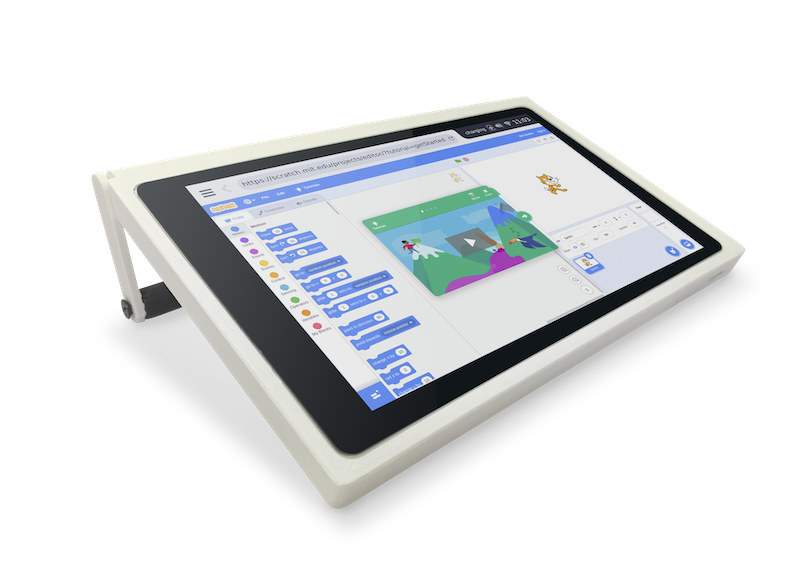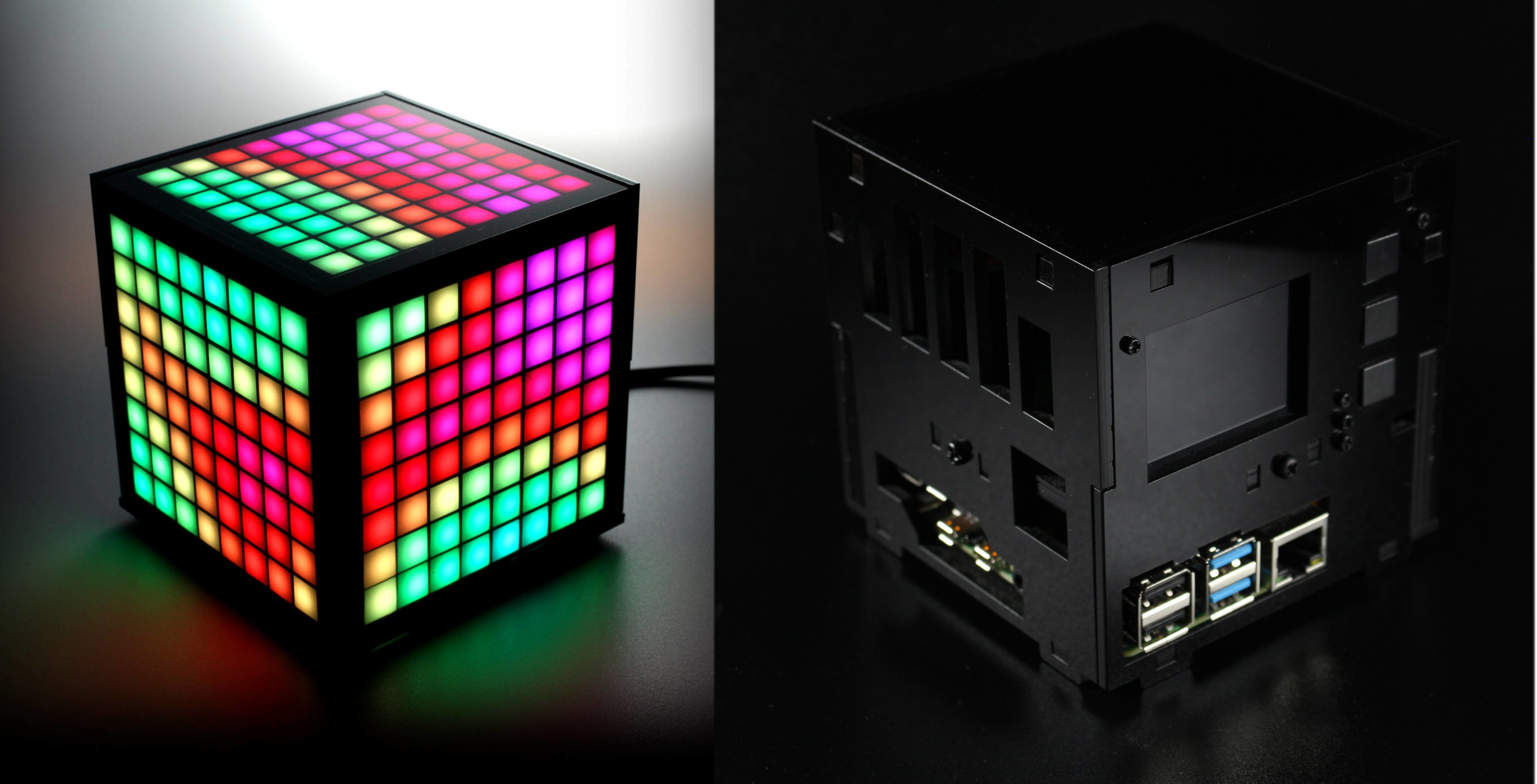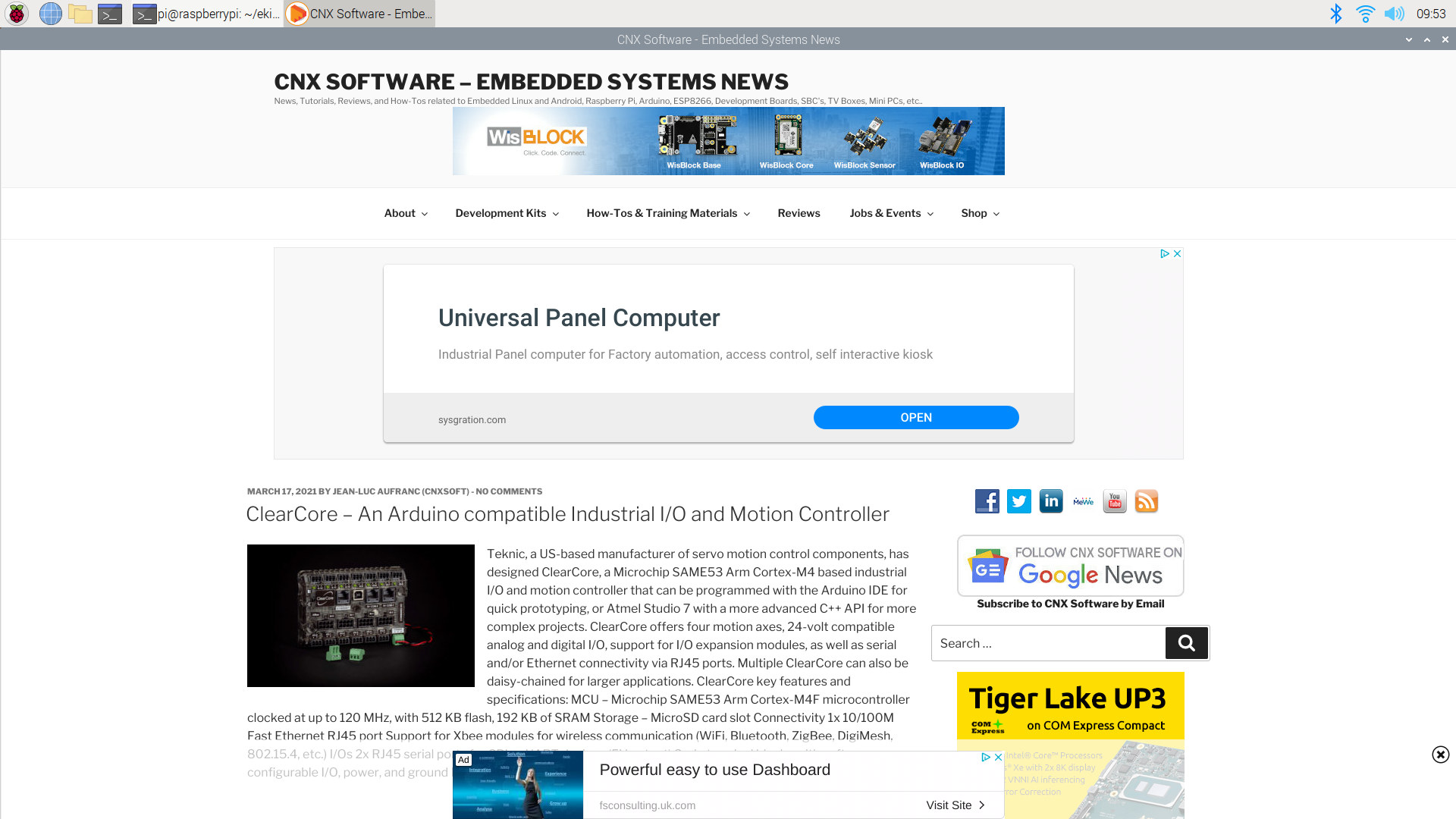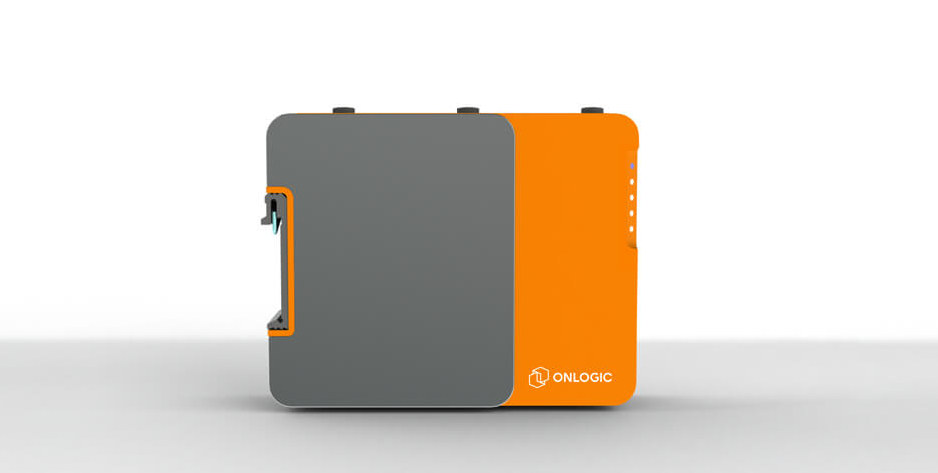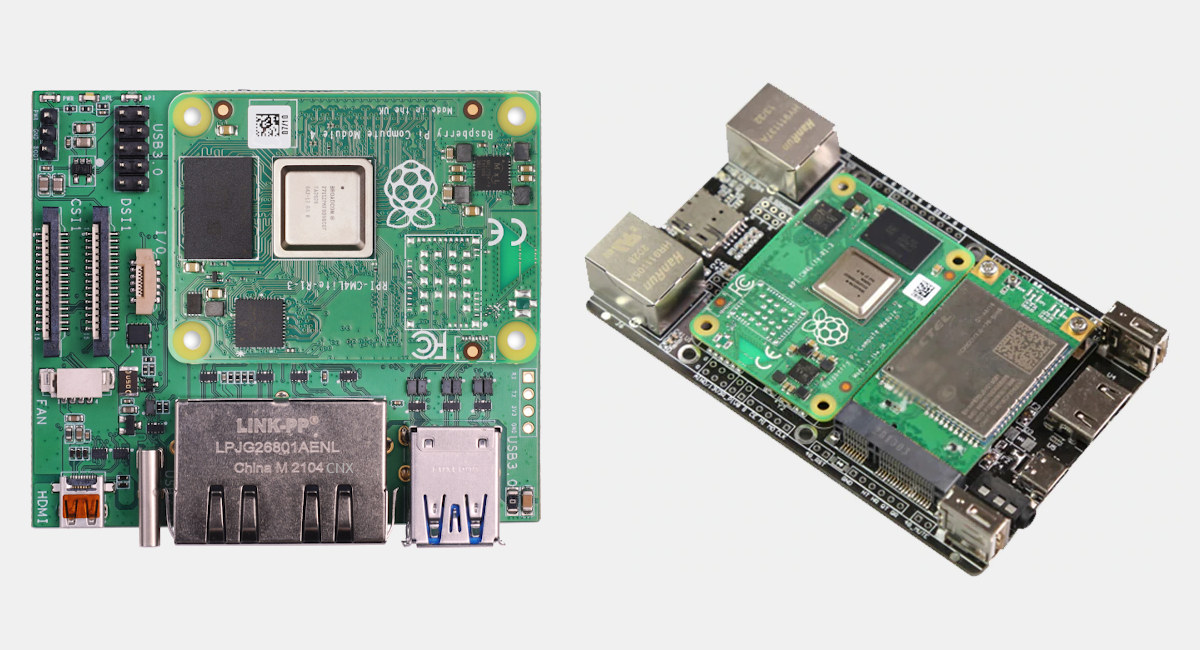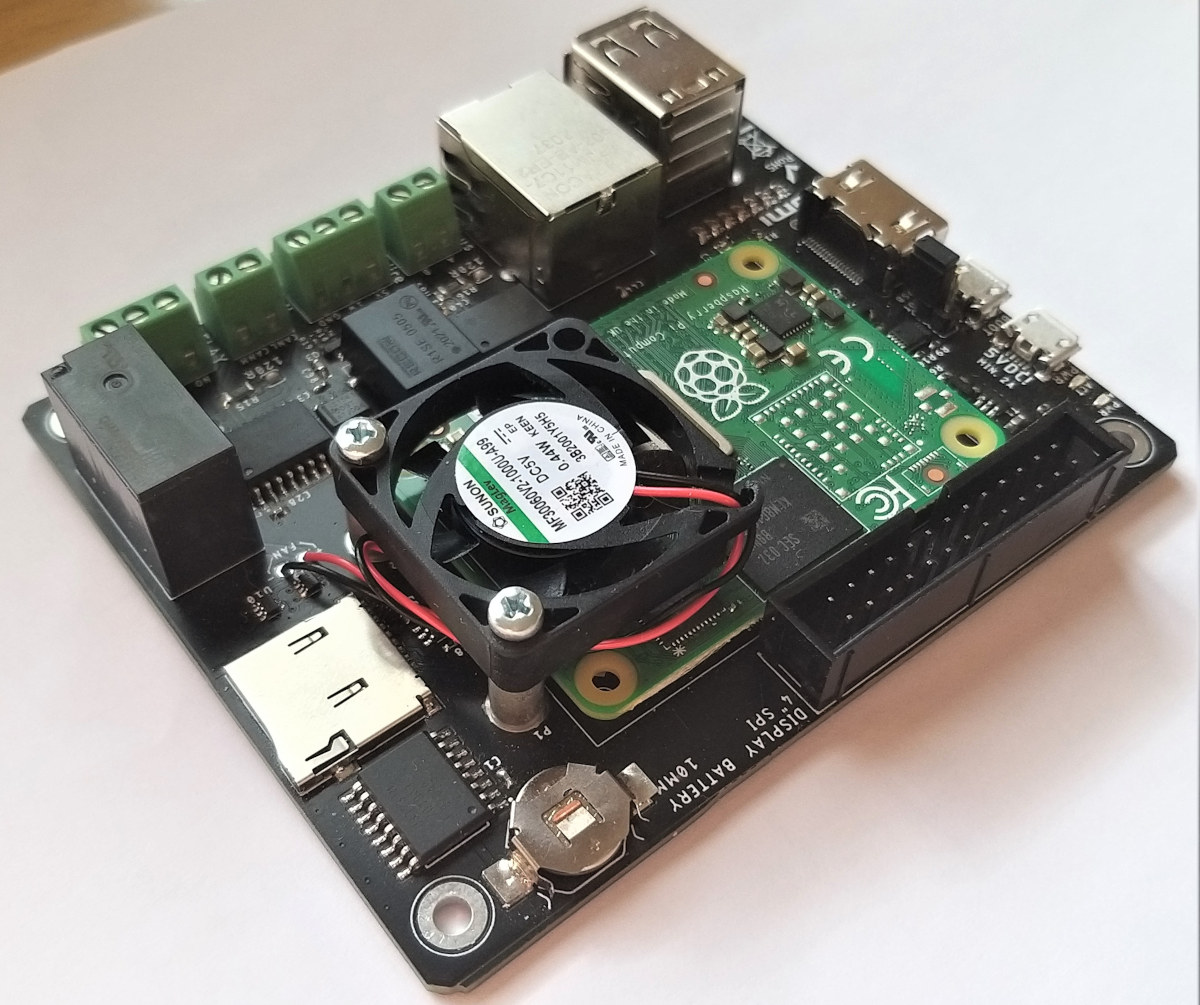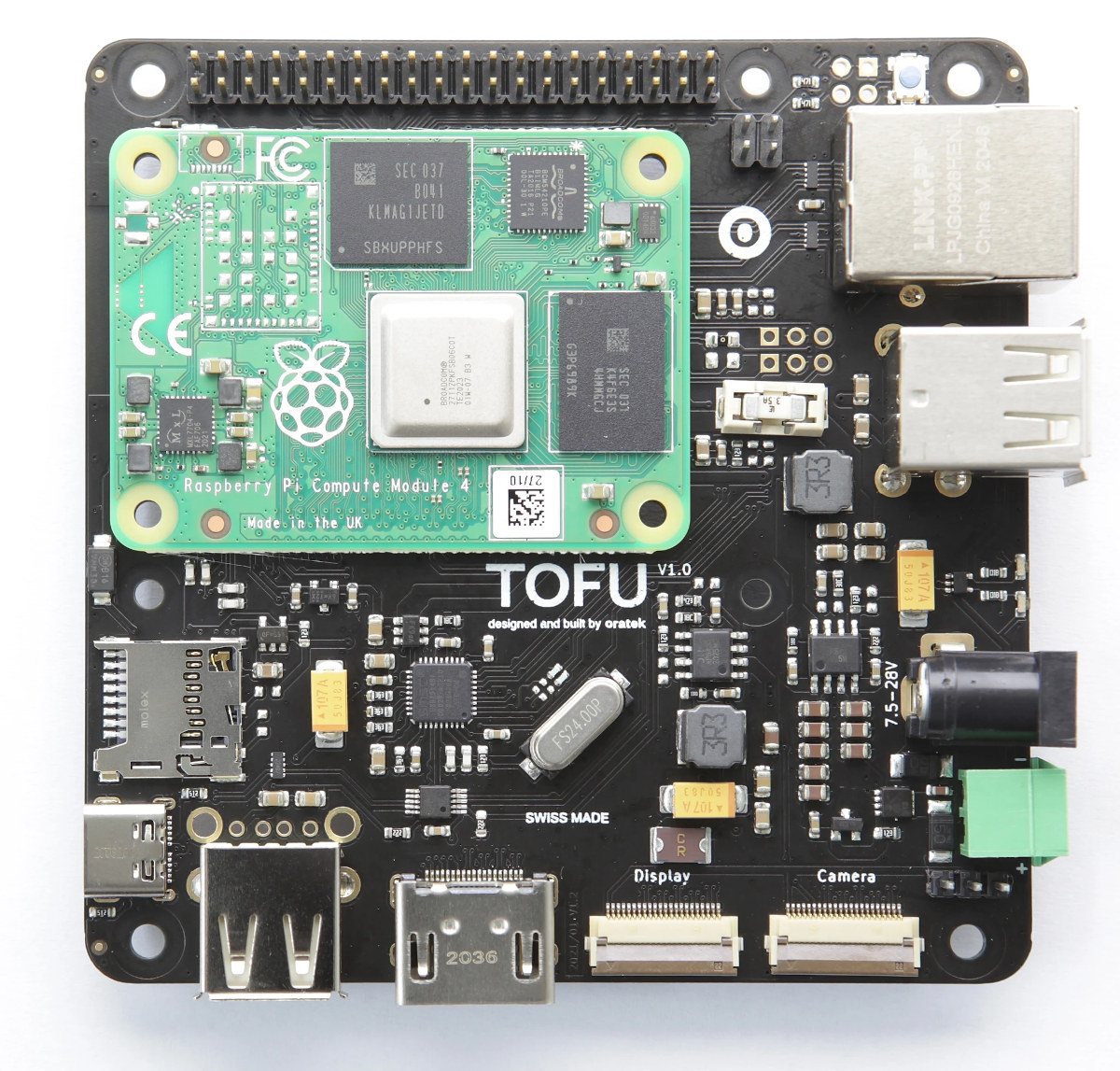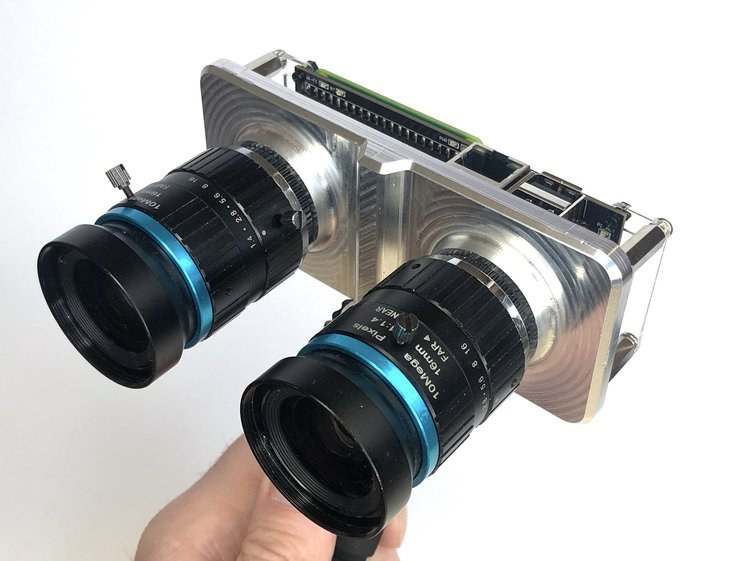CutiePi tablet was launched on Kickstarter last year with a Raspberry Pi Compute Module 3+ Lite, an open-source hardware carrier board, and an 8-inch multi-touch display with 1280×800 resolution. Shipping to backers is about to start, but the company has already started working on a new version of the CutiePi Tablet with the Raspberry Pi CM4 module released last October. This will enable greater performance and more memory with the tablet shipping with a 2GB RAM CM4 module by default. CutiePi CM4 tablet preliminary specifications: SoM – Raspberry Pi Compute Module 4 Lite with Broadcom BCM2711 quad-core Cortex-A72 processor @ 1.5 GHz, 2GB RAM Storage – MicroSD card slot Display – 8-inch 5-point multi-touch IPS LCD with 1280×800 resolution Video Output – Micro HDMI Audio – 2W 8Ohm speaker, audio amplifier, built-in microphone Camera – 5MP front-facing camera (OV5647) Connectivity – Dual-band 802.11 b/g/n/ac WiFi 5 and Bluetooth 5.0 USB […]
Raspberry Pi case embeds 192 programmable LEDs, speaker, microphone, and sensors (Crowdfunding)
Most Raspberry Pi enclosures are designed to protect your board from dust, provide easy access to ports, and in other cases, ease the installation of hard drives or SSDs. But Abstract Foundry’s LumiCube does much more, and just calling it a case or enclosure is an understatement, as while it does house a Raspberry Pi, it also comes with 192 programmable LEDs placed over 3 panels, a speaker, a microphone, as well as several optional motion & environmental sensors, and a small 2-inch LCD display. LumiCube specifications: Acrylic base 3x RGB LED panels with 64 programmable LEDs each Audio – 2W speaker and microphone Display (optional) – 2-inch 320×240 IPS screen for system parameters or other info (e.g. sensor data) or images. Note that it can now show the Raspberry Pi desktop Sensors (optional) – Light & gesture sensor, BME280 temperature, humidity and pressure sensor, BNO055 IMU (accelerator and tilt […]
Flow Browser, a Raspberry Pi optimized web browser for HMI
Most people will use Chromium on Raspberry Pi boards simply because it’s now the default browser in Raspberry Pi OS. But the performance may not be optimal, and UK-based Ekioh has developed the Flow Browser optimized for performance on Raspberry Pi with multi-thread support and 3D accelerated graphics. There’s a caveat though, as the Flow Browser has been developed from the ground up, i.e. not based on Webkit or Mozilla Engine, with human-machine interfaces (HMI) in mind, rather than individuals browsing the web, and that means that while performance will be better, site compatibility does suffer at this point in time. Key features in Flow Browser Before going into benchmarks and other tests, let’s check some of the key features listed for Flow Browser: HTML & CSS3CSS – Animations and Transitions, CSS Transforms (2D and 3D), CSS Flexbox, Bi-directional text layout Graphics – Web Fonts – Canvas, SVG & WebGL […]
Onlogic industrial Raspberry Pi CM4 based mini PC to offer dual GbE, USB 3.1, M.2 SATA socket
Yesterday, we covered two Raspberry Pi CM4 carrier boards with dual Ethernet ports, including one from Seeed Studio with dual Gigabit Ethernet and USB 3.1 ports, and another from MCUZone with Gigabit + Fast Ethernet ports, USB 2.0 ports, plus a 4G LTE modem. But Onlogic will soon add another option with a complete Raspberry Pi CM4 based industrial mini PC with dual Gigabit Ethernet, teased as “One Tough Pi”, as well as USB 3.2/2.0 ports, M.2 SATA storage, and more. Onlogic “One Tough Pi” mini PC preliminary specifications: SoM – Raspberry Pi CM4 module with up to 8 GB LPDDR4 memory, 32 GB eMMC flash storage Storage – M.2 2280 SATA SSD support Video & audio output – 1x Micro HDMI port up to 4Kp60 Connectivity – 2x Gigabit Ethernet ports USB – 3x USB ports include 1x USB 3.2 Gen 1 port, and 2x USB 2.0 ports; 1x […]
Raspberry Pi CM4 boards offer dual Ethernet, 4G LTE
Since the launch of Raspberry Pi CM4 and CM4Lite systems-on-module last October, we’ve seen carrier boards bring their own set of features including industrial communication interfaces, a stereoscopic camera, four SATA ports to build a NAS, a DIN-rail based industrial controller, and more. But so far, I have not seen a Raspberry Pi CM4 carrier board with dual Ethernet ports. Seeed Studio’s “Dual Gigabit Ethernet Carrier Board for Raspberry Pi Compute Module 4” was brought to our attention this morning, but there’s another one with 4G LTE connectivity, Fast+Gigabit Ethernet ports, and extra I/Os courtesy of MCUZone’s CM4-4G IO board. Let’s have a look at both of them. Dual Gigabit Ethernet Carrier Board for Raspberry Pi Compute Module 4 Specifications: Supported SoMs – Raspberry Pi CM4 and CM4Lite with up to 8GB RAM, 32GB eMMC flash, optional WiFi & Bluetooth Storage – MicroSD card slot to load OS on CM4Lite […]
Raspberry Pi CM4 Carrier Board comes with RS485/Modbus, CAN, 1-wire interfaces (Crowdfunding)
Another day, another Raspberry Pi CM4 carrier board. Just like the TOFU carrier board, CM Hunter carrier board for Raspberry Pi CM4 targets industrial applications, but in a different way, as it focuses on industrial communication protocols with Galvanically-Isolated RS485/Modbus, 1-Wire, CAN 2.0B, and together with more common interfaces like Ethernet, HDMI, USB, etc… CM Hunter specifications: Supported systems-on-module – Raspberry Pi Compute Module 4 / 4 Lite Industrial communication Interfaces Isolated RS485/Modbus (Profibus compatible) based on Texas Instruments ISO1410 controller Isolated CAN 2.0B based on Microchip MCP2515 controller and MAX14879 CAN transceiver Isolated 1-Wire via Maxim DS2482 I2C bridge Storage – MicroSD card slot Video Output – HDMI 2.0, optional 3.5-inch or 4-inch 480×320 LCD display with resistive touch connected over SPI Networking – Gigabit Ethernet RJ45 port and optional 802.11b/g/n/ac WiFi 5 plus Bluetooth 5.0 LE USB – 2x USB 2.0 ports, 1x micro USB 2.0 OTG port […]
Raspberry Pi Compute Module 4 industrial carrier board supports M.2 NVMe SSD, 4G LTE modem
Since the Raspberry Pi Compute Module 4 launch last fall, we’ve seen several interesting carrier boards for the system-on-module including Wiretrustee to build a NAS with up to four SATA drives, the compact, Arduino-sized Piunora board that also include an M.2 socket, or Over:Board mini-ITX carrier board. Oratek brings another one specially designed for industrial use cases with TOFU Raspberry Pi Compute Module 4 carrier board offering wide DC input, Gigabit Ethernet with PoE, M.2 NVMe SSD or 4G LTE modem support, among many other features. Specifications: Raspberry Pi Compute Module 4 socket Storage NVMe SSD via M.2 2242 Key B socket (See Expansion section) MicroSD card slot Video Output HDMI 2.0 port up to 4Kp60 MIPI DSI connector for Raspberry Pi LCD display Camera – 1x MIPI CSI connector for Raspberry Pi camera Connectivity Gigabit Ethernet port with PoE Optional WiFI 5 and Bluetooth 5.0 on Raspberry Pi CM4 […]
StereoPi v2 stereoscopic camera is powered by Raspberry Pi CM4 (Crowdfunding)
StereoPi stereoscopic camera based on Raspberry Pi Compute Module 3 was introduced in late 2019 on Crowd Supply. The camera can record 3D video, create 3D depth maps with OpenCV, and benefits from the Raspberry Pi software ecosystem. The developers are now back with an upgraded model. StereoPi v2 comes with many of the same features, but as it is based on Raspberry Pi CM4 (Compute Module 4) it offers better performance, Gigabit Ethernet, Wifi & Bluetooth connectivity out of the box, while other features like PoE, TFT screen, shot button, etc.. are optional. StereoPi v2 specifications: Supported SoM – Raspberry Pi CM4 or CM4Lite modules Storage – MicroSD card socket Video Output – Micro HDMI port Camera I/F – 2x MIPI CSI camera connector plus “hackable camera lines” Networking – Gigabit Ethernet RJ45 port, plus optional WiFi 5 and Bluetooth 5.0 on Raspberry Pi CM4 module USB – 2x […]


